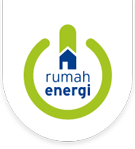Construction Partner Organisation (CPO)
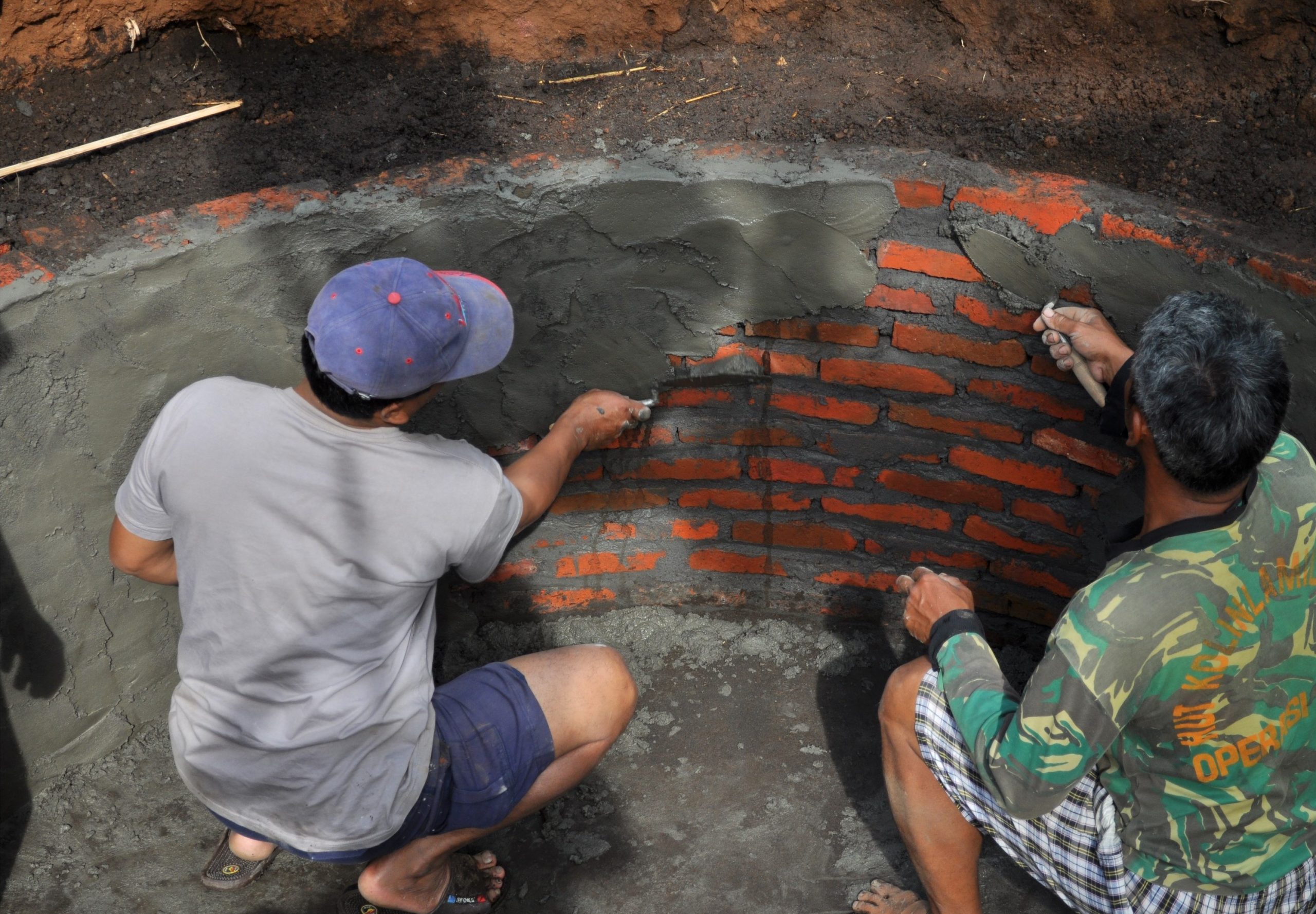
By: Janosch Ludwig
Rumah Energi has operated in 13 provinces in Indonesia with more than 50 CPO together. This relationship is essential for Rumah Energi and until now partner is in demand. If Rumah Energi obtains a contract from farmers or government they manage the assign duties to the CPO. Responsible for the construction is now the selected CPO.
How to become a CPO
First of all, everyone who is willing to, are able to become a CPO. Rumah Energi receives the inquiry from the potential CPO. Thus, Rumah Energi has to check if they are able to become CPO in the future.
Demands to become CPO:
1) at least five masons with experience in construction
2) one supervisor
3) Capital at least IDR 20.000.000
4) has a legal certificate as institutional/organisation
5) own a bank Account
6) has a business plan
Should CPO carry out all these three demands then Rumah Energi organise a training for the CPO team.
Training from Rumah Energi
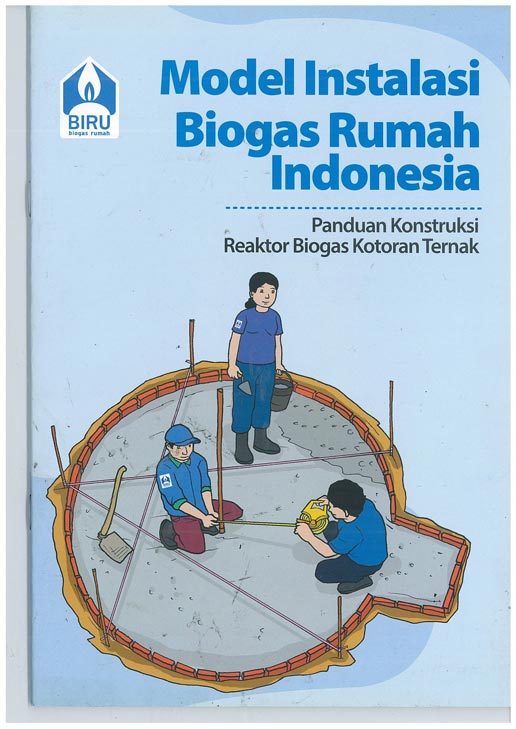
Before CPO are able to start the activities in construction biodigester CPO needs an “on job” training. “On job” training means that CPO team build in seven days an ordinary biodigester in the field. CPO search in the field for a potential customer who wants to install a biodigester. If CPO gets the contract to constructing then the seven days training with instruction from a Rumah Energi employee. The mason gets training for installation biogas which is based on the book: “Model Instalasi, Biogas Rumah Indonesia, Panduan Konstruksi, Reaktor Biogas Kotoran Ternak”, “Installation Model, Indonesian home Biogas, construction guide, livestock sewage Biogas reactor”. Also, only the supervisor get training: “how to carry out user training”.
After the seven days, “one job” training CPO can start to act and construct many biodigesters in the future. Besides construction, CPO organizes biogas information events in socialisation to farmer groups or in the village. These events are important to promote biogas and catch new customer for more contracts. People visit these events to get more information about: the BIRU program, biodigester construction, use fertiliser, subsidy etc. The better CPO explain everything the easier to spread biogas to the people.
Task
The CPO get the assign from Rumah Energi or direct from the customer to carry out this order to build a biodigester. There is this task that CPO has to do:
1) appointment with the customer for the first meeting.
2) in first meeting CPO visit the house and make a plan/surface: where should be the biodigester build, how big should the construction be, how many family members living in the household, how many animals (what kind of animals), when does the construction start?
Also, CPO has to bring a list with all standard materials and quantity that CPO need for the construction. CPO discuss who want to buy which contribution? Mostly the CPO buy all material but if the customer wants to buy the materials by themselves it is no problem as well.
3) “Pre-construction document”. With all these pieces of information CPO drawn up a document with an ID number and let the customer sign it. CPO can download a special version of the KOBO application in the app store. “Kobo” make it easier for the CPO to share their information because it is connected to the Rumah Energi head office in Jakarta. Also, CPO sends the “pre-construction document” to Rumah Energi.
4) User pay full price of the biodigester to the CPO.
5) CPO start to construct the biodigester after all material is on location.
6) After construction is finished the CPO send completion report through the KOBO app.
7) A quality control employee from Rumah Energi will check the supervisor and also the quality of construction.
8) Is everything right then the CPO get 1.000.000 Rp. from Rumah Energi as subsidy and another 1.000.000 Rp. go to the customer as subsidy from Rumah Energi as well.
9) User training from CPO after finished the construction. Ideal time is the month because then should be the first gas in the digester produced.
User training
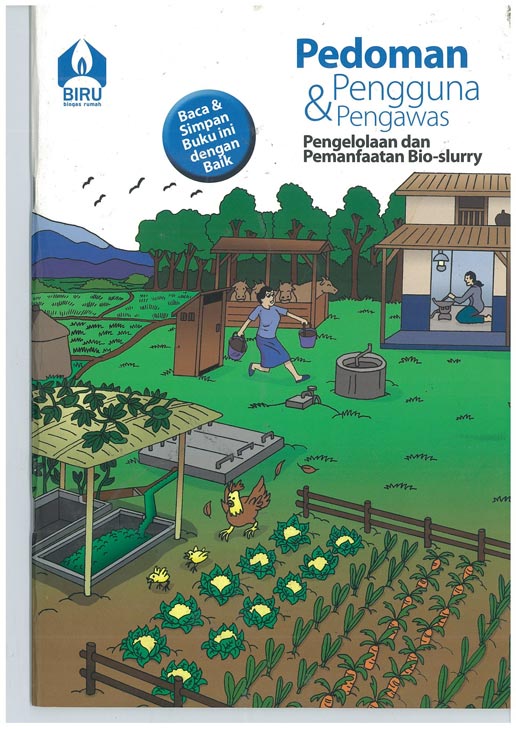
The user training is given from the supervisor and build on two important books where everything is in an easy and illustrate way describe:
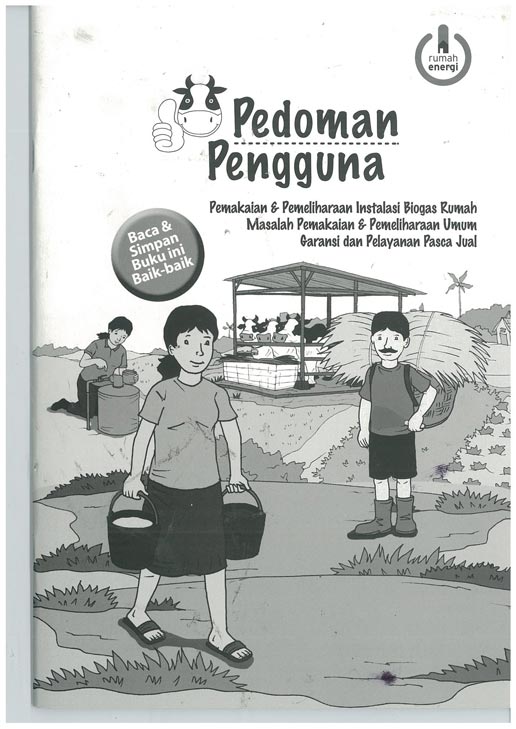
“Pedoman, Pengguna & Pengawas, Pengelolaan dan Pemanfaatan Bio-slurry”.
“Guidelines, user & Supervision, management and utilization of Bio-slurry”
Instructions for Bio-slurry: what ingredients, use for what, how to bring it on the field, produce fertiliser to sell, etc.
